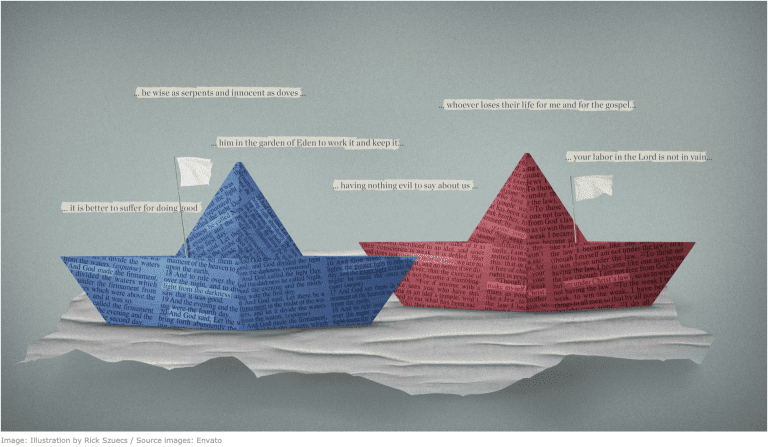 If you’ve read much of my work, then you’ve come across this idea: We compromise the gospel when we settle for truth.
If you’ve read much of my work, then you’ve come across this idea: We compromise the gospel when we settle for truth.
The basic idea is simple enough. We tend to be content with true ideas or doctrines, and that leads us to overlook, minimize, or even deny other aspects of biblical truth. Generations of missionaries have presented the Bible’s message accurately and passionately. Yet, for many who heard them, that message lacked meaning. It made no sense. While they heard the truth, something in the presentation obscured its value.
Right Movie, Wrong Genre
The following videos beautifully illustrate what happens when we don’t properly contextualize the gospel. These videos are remade movie trailers that present the movies as though they were from different genres. For instance, one depicts “The Silence of the Lambs” as though it were a romantic comedy. The other portrays Elf as if it were a horror flick.
Each of these remade trailers contains genuine clips from the movie. However, they are arranged in ways that misrepresent the broader gospel story. I think this can and has happened when people misuse tools like C2C.
When we are not mindful of how to do contextualization, we might easily present a collection of true statements yet in ways that are not biblically faithful or culturally meaningful.
To see what Vanilla Ice teaches us about contextualization, click here.
A Few Examples
What are some examples of poor contextualization that resemble these clips? I’ve shared several examples in the past. I’ll review just a couple to illustrate the basic point.
So often, we share bits and pieces of true doctrine but organize them in ways that only make sense to people already familiar with the Bible. For instance, I’ve written about the strangeness of the Adam-and-Eve story for people unfamiliar with the Bible. They wonder why they must go to hεll because some ancient couple ate some kind of forbidden fruit.
Likewise, we might emphasize one aspect of “law” (the concept has many cultural expressions) at the expense of a more robust and biblical conception of law. As a result, we do not distinguish a king from a judge. God is a king, not merely a judge. A king is a judge, but a judge is not necessarily a king. I too often see people reduce the “law” to a general set of rules, according to which God judges people “guilty” or “innocent.” God is reduced from a king to a mere administrator of juridical law.
In other words, God’s law becomes merely legal, not regal.
For those interested, I’ve also shown how we can misunderstand the meaning of God’s righteousness as something primarily punitive rather than saving. Furthermore, some present atonement in such a way that people can mistakenly regard Christ’s death as a type of “honor killing.”
These misrepresentations contain much truth but result when those truths are presented in less-than-biblical ways.













